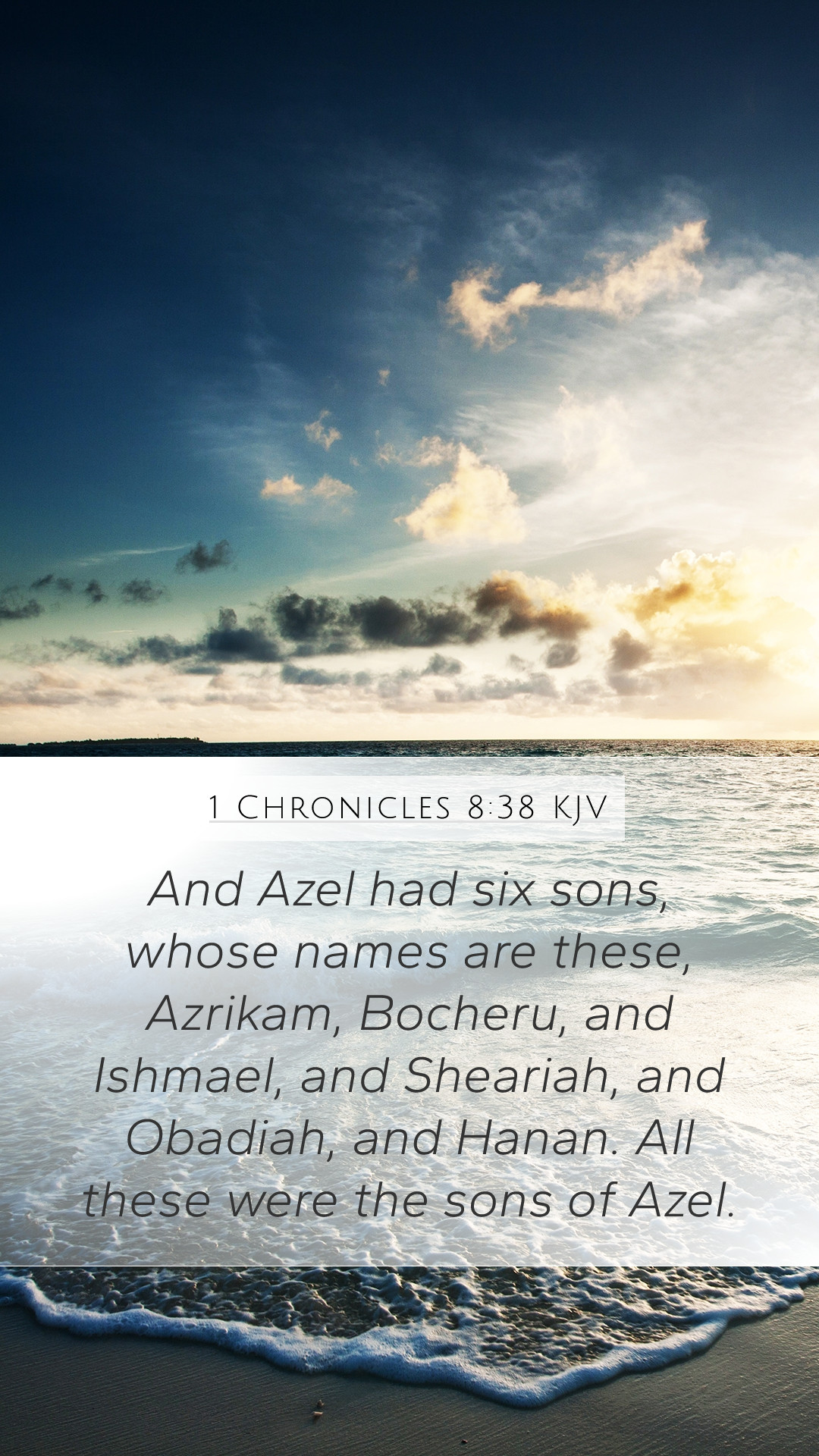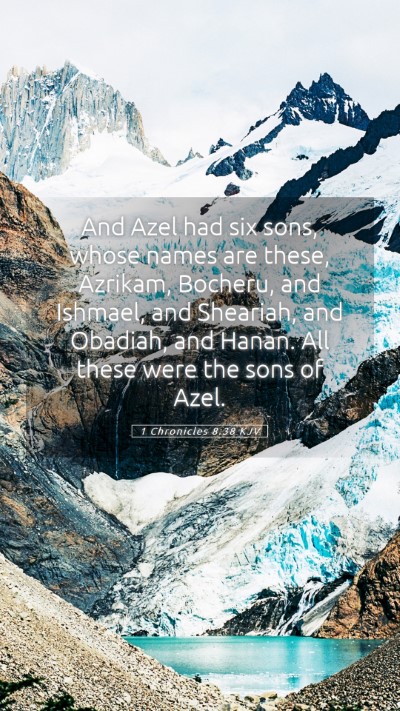1 Chronicles 8:38 - Bible Verse Meaning and Commentary
Verse: 1 Chronicles 8:38 - “And the father of Gibeon, Jeiel, whose wife was Maacah, bare Abdon.”
Overview of the Verse
This verse is part of a genealogical record found in 1 Chronicles, which highlights the family lines and heritage of the Israelites. It provides particular details about Jeiel and his connections through his wife Maacah, ultimately leading to the mention of their son Abdon.
Meaning of the Verse
The significance of genealogies in the Bible cannot be overlooked as they serve multiple purposes:
- Establishing Identity: The genealogies ground characters in their historical and cultural contexts. Jeiel’s lineage places him within the broader narrative of Israel’s history.
- Highlighting Family Roles: By naming families and specific individuals, the verse illustrates the importance of familial connections in Israelite society, where lineage determined status and inheritance.
- Encouraging Recognition of Legacy: Mentioning Maacah as the mother of Abdon reflects the significance of women in biblical narratives, acknowledging their role in shaping the lineage.
Insights from Commentaries
Various biblical scholars have offered commentary on this verse, providing a deeper understanding:
- Matthew Henry: Henry discusses the importance of understanding one’s lineage and the connections between familial relationships in the context of God's unfolding plan. He emphasizes that although genealogies might seem tedious, they teach us about God's work through families.
- Albert Barnes: Barnes elaborates on the significance of the city of Gibeon, highlighting its relevance in the history of the Israelites and its strategic importance. He notes how the mention of specific individuals like Jeiel connects the broader historical narratives of Israel.
- Adam Clarke: Clarke approaches the text with an emphasis on the personal aspects of these names. He underscores the importance of understanding the characters not only as representatives of tribes but as individuals contributing to the legacy of the nation of Israel.
Application to Daily Life
Understanding this verse allows for practical applications:
- Emphasis on Heritage: Just as the Israelites valued their lineage, individuals today can reflect on their heritage and how it shapes their identity.
- Value of Family: The verse serves as a reminder of the significance of family, encouraging readers to nurture those relationships.
- Appreciation for Biblical Context: Understanding the historical backdrop of biblical genealogies can enhance one's study and appreciation of Scripture.
Cross References
- 1 Chronicles 9:35-44: Discusses the genealogy of the family of Saul.
- Joshua 9:3-6: Relates the Gibeonites to their historical context and significance.
- 2 Samuel 21:1-2: Mentions the Gibeonites in the narrative of David.
Conclusion
The analysis of 1 Chronicles 8:38 demonstrates the intricate weave of identity, family, and historical context found within biblical genealogies. By integrating insights from various public domain commentaries, this exploration of scripture can aid in understanding and applying the lessons of heritage, identity, and the importance of family relationships within both the biblical narrative and our contemporary lives.
Further Study Suggestions
- Explore additional genealogical texts in the Old Testament to see patterns of lineage.
- Participate in bible study groups focusing on genealogies, perhaps using tools like bible study guides and online bible study resources.
- Consider the implications of your own heritage and how it informs your values and beliefs.


